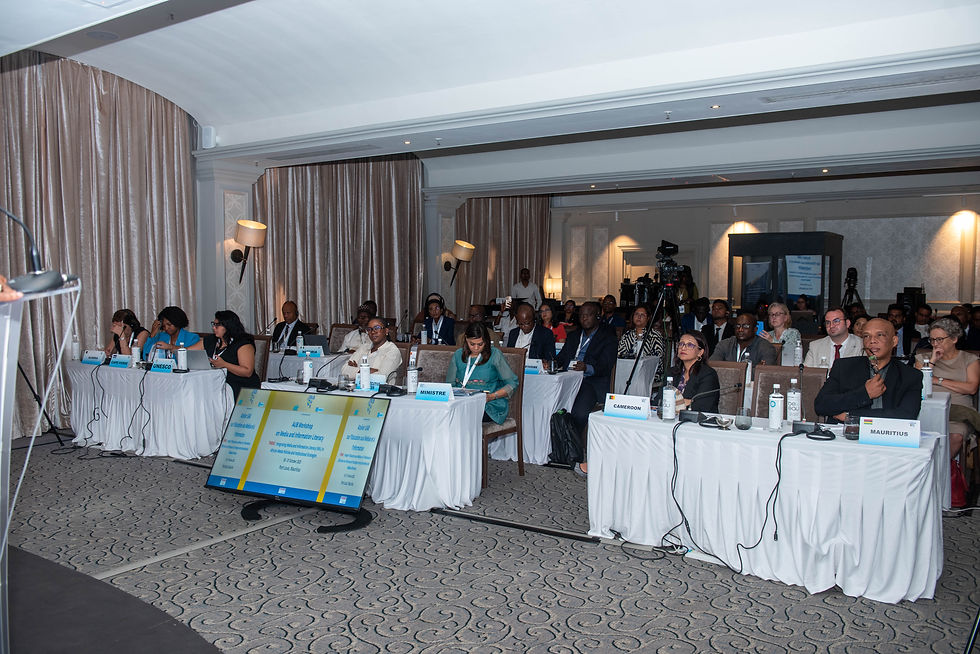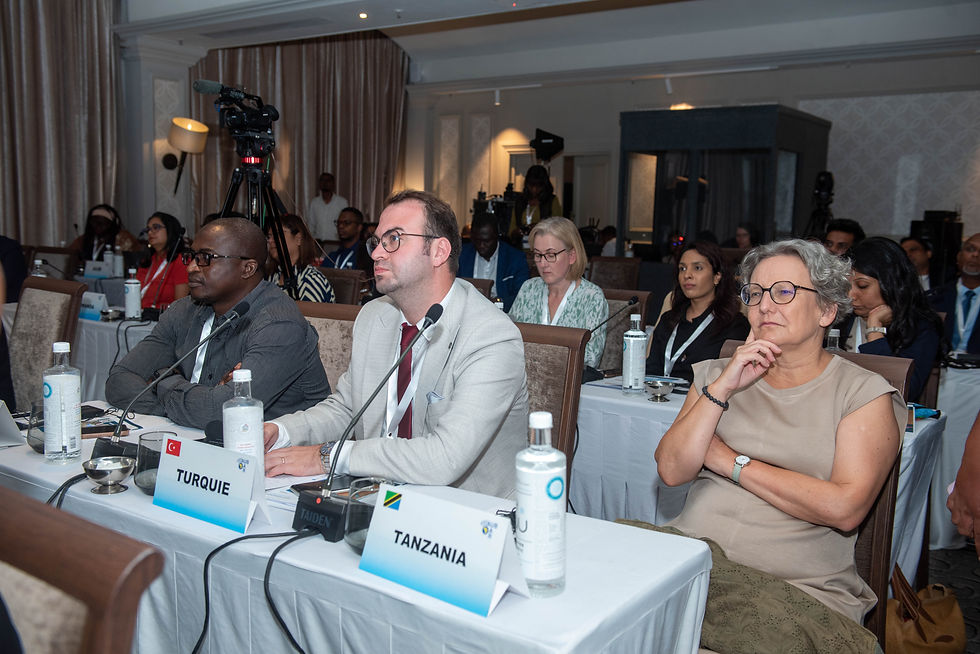AUB–UNESCO Media Literacy Workshop Calls for Stronger African Media Leadership in Combating Misinformation
- Oct 31, 2025
- 3 min read
Port Louis, Mauritius. 30-31 October 2025
The African Union of Broadcasting (AUB) in partnership with UNESCO convened a high-level Workshop on Media and Information Literacy (MIL) in Port Louis, Mauritius, under the theme, “Integrating Media and Information Literacy (MIL) in African Media Policies and Institutional Strategies.”
The two-day event brought together media leaders, broadcasters, and communication experts from across the continent to explore how African media institutions can integrate MIL principles into policy frameworks and newsroom practices to counter disinformation, promote digital safety, and strengthen social cohesion.

Media as a Driver of Africa’s Transformation
Declaring the workshop open, the Mauritius Minister of Information Technology, Communication and Innovation, Honourable Avinash Ramtohul, said Africa is on the brink of a demographic transformation that will make it home to the world’s largest youth population by 2035. This, he noted, presents both opportunity and responsibility for the continent.
“The challenge,” he emphasized, “is to convert this potential into performance-and the media must play a central role in that process.”

The Minister observed that while technology has revolutionized communication and made information more accessible, it has also amplified the dangers of misinformation, disinformation, and mal-information. With nearly everyone now acting as a “reporter,” he said, false information can spread faster than truth, threatening peace, stability, and the well-being of citizens.

He questioned the accountability of global digital platforms hosting harmful content, noting that “millions of dollars flow out of Africa to countries operating these platforms, yet the damage caused by misinformation is borne by our youth and our societies.”
Mauritius, he affirmed, would “leave no stone unturned” in ensuring a safe digital environment, warning that technology must not be allowed to disrupt the country’s social harmony. He also raised critical concerns about victims of online image manipulation and the lack of effective mechanisms for redress when harm has already been done. “How many of these platforms,” he asked, “are legally present in African countries or have compliance officers who can act swiftly when harmful content goes viral?”

AUB Calls for Media Empowerment and Responsible AI
In his address, AUB Director General, Mr. Gregoire Ndjaka, reaffirmed the organization’s conviction that “an informed society begins with an informed media.” He emphasized that journalists, producers, and broadcasters hold immense power in shaping public perception and civic engagement.
Mr. Ndjaka urged African nations to rise to the challenge of contributing to the global development of Artificial Intelligence (AI), stressing that “Africa cannot continue as a passive consumer but must become an active innovator.” He added that while AI can enhance media practice, “we must guide our young people to see technology as a tool to amplify human creativity, not replace it.”

UNESCO’s Perspective on Media Literacy
Speaking virtually, Mr. Alton Grizzle, UNESCO Programme Specialist in Communication and Information, highlighted the urgency of building media and information literacy capacities in an era of disinformation, polarization, and online hate.
“In this complex digital landscape,” he said, “MIL equips citizens with the competencies to access, analyze, and evaluate information critically—both online and offline.” Grizzle emphasized that citizens must also understand how communication technologies operate, are governed, and how they impact digital rights. “MIL,” he concluded, “is about empowering people to make informed decisions, participate meaningfully in civic life, and contribute to peace and democracy.”

A Call for Ethical, Inclusive and Resilient Media
Mr. Amaresh Ramlugun, Chairperson of the Mauritius Broadcasting Corporation (MBC) Board of Directors, described the workshop as “a milestone in strengthening African media institutions to confront the challenge of information disorder.”
He noted that in a world where misinformation and hate speech often travel faster than truth, the need for credible, ethical, and inclusive journalism has never been greater.

“This workshop,” he said, “aims to equip practitioners with practical AI tools, digital storytelling techniques, and strategies to counter false narratives.” Participants, he added, would also explore best practices in data protection, privacy, and gender-sensitive content creation—while developing strategies to embed MIL into editorial policies, newsroom workflows, and journalism education.
Shaping Africa’s Information Future
Throughout the two-day sessions, participants engaged in experience sharing and collaborative learning on themes including the ethical use of AI, gender equality and inclusiveness in media, digital privacy and data protection, and integrating MIL principles into newsroom culture.

The AUB–UNESCO partnership on Media and Information Literacy continues to serve as a continental framework for building a media ecosystem where citizens are not just consumers of information, but informed participants in shaping Africa’s narrative and future.


















































Comments